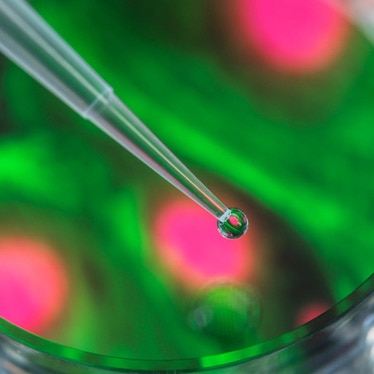Culturing of 3D model systems
Patient-derived organoids (PDOs) created from patient biopsies can mirror clinical responses to highlight the therapy or combination of therapies that have the greatest efficacy.
It’s critical that PDOs maintain tissue heterogeneity through rounds of propagation because expansion is often required to generate enough material for extensive functional drug tests.
Suggested products:
Phenotypic profiling
High-content imaging systems combined with machine learning can tease apart subtle yet crucial phenotypic differences within ex vivo cultures, allowing you to explore the heterogeneity within a patient sample and identify the most potent drug combinations.
Suggested products:
Cell health analysis
Determining cell health ex vivo is critical for evaluating therapeutic efficacy. These assays are cost effective and often quick to perform, allowing more drug combinations or time points to be tested.
Monitor cell viability and proliferation with either luminescence assays readout on multilabel plate readers or using image cytometry for a more detailed understanding of sample heterogeneity.
Suggested products:
- ATPlite 3D, 300 Assay Points
- CulturPlate (384-well, white, sterile and TC-treated)
- CellCarrier Spheroid ULA 96-well Microplates
- ATPlite 1step 3D, 10 mL kit
- ATPlite Luminescence Assay System
- Cellaca PLX High-throughput Image Cytometer
- VICTOR Nivo Multimode Microplate Reader
- Integrated Laboratory Automation
PDX monitoring
In in vivo modeling, PDX models are used to anticipate cancer aggressiveness and to recapitulate tumor-stroma architecture.
Engrafted to the host, the model system maintains primary tumor features over numerous passages, avoiding the bias of culture-driven genetic drift.






























